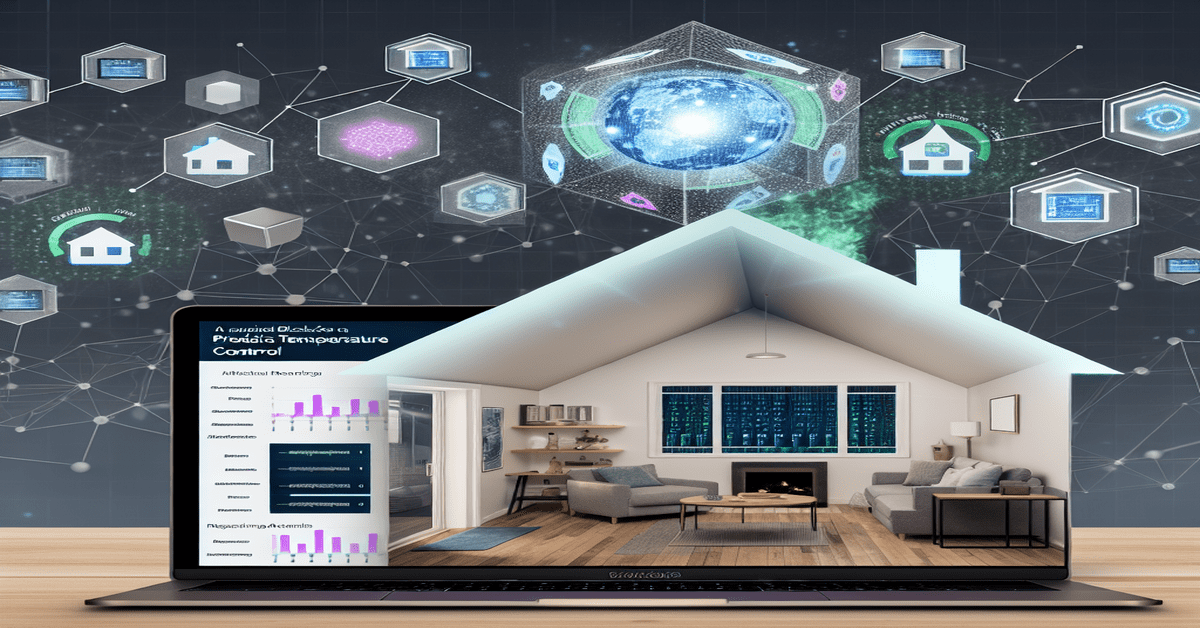Revolutionizing Smart Home Temperature Control with AI-Powered Blockchain Framework
In the era of smart homes and connected devices, energy efficiency and user comfort have become increasingly important. A recent study published in Nature has introduced an innovative **AI-powered blockchain framework** that promises to transform temperature control in smart homes. This groundbreaking approach combines cutting-edge technologies such as **machine learning algorithms**, **wireless sensor networks**, and **edge computing** to create a more efficient, secure, and user-friendly system.
The Power of Predictive Analytics
At the heart of this revolutionary framework lies the power of predictive analytics. By leveraging advanced machine learning algorithms like Random Forests and LSTM networks, the system analyzes real-time and historical data from various sources, including outdoor weather conditions, occupancy levels, and user preferences. This comprehensive analysis enables the framework to accurately predict indoor temperature fluctuations, allowing for proactive adjustments to heating and cooling schedules.
The benefits of this predictive approach are twofold. First, it significantly enhances energy efficiency by optimizing the use of heating and cooling systems. Simulations have shown that this AI-powered framework can achieve up to **15.8% energy savings** compared to traditional methods. Second, it ensures a higher level of user comfort by maintaining the desired temperature range more consistently, adapting to the unique needs and preferences of each household.
Blockchain Technology: Secure and Decentralized
One of the key features that sets this framework apart is its integration of **blockchain technology**. By leveraging the inherent security and decentralization of blockchain, the system ensures the integrity and confidentiality of sensor data and transactions. This is particularly important in the context of smart homes, where sensitive information about occupants’ behaviors and preferences is constantly being collected and processed.
Moreover, the use of blockchain enables peer-to-peer energy trading with dynamic pricing and incentives. This means that households with excess energy generated from renewable sources, such as solar panels, can securely sell their surplus to neighboring homes in need of additional power. This decentralized approach not only promotes the adoption of clean energy but also fosters a sense of community and collaboration among smart home owners.
Edge Computing: Enhancing Responsiveness and Scalability
Another critical component of this innovative framework is the incorporation of **edge computing**. By processing data closer to the source, at the edge of the network, the system reduces latency and computational load on central servers. This **time-shifted data processing** approach improves the responsiveness of the temperature control system, allowing for faster adjustments based on real-time changes in the environment.
Furthermore, edge computing enhances the scalability of the framework. As the number of connected devices and sensors in smart homes continues to grow, traditional centralized systems may struggle to handle the increasing volume of data. By distributing the computational burden across edge devices, this AI-powered blockchain framework can accommodate the expanding needs of smart home ecosystems without compromising performance or efficiency.
Balancing Efficiency, Comfort, and Security
The AI-powered blockchain framework for predictive temperature control in smart homes represents a significant leap forward in the field of home automation. By seamlessly integrating machine learning, blockchain, wireless sensors, and edge computing, this innovative approach effectively balances the three key aspects of smart home management: energy efficiency, user comfort, and data security.
The potential implications of this framework extend beyond individual households. As more homes adopt this technology, the cumulative impact on energy conservation and carbon footprint reduction could be substantial. Moreover, the secure and transparent nature of the blockchain-based system fosters trust and encourages wider participation in the smart home ecosystem.
The Future of Smart Home Temperature Control
As the world continues to embrace the concept of smart homes, the demand for efficient, secure, and user-centric solutions will only continue to grow. The AI-powered blockchain framework introduced in this study sets a new standard for temperature control, showcasing the immense potential of integrating cutting-edge technologies to address real-world challenges.
Looking ahead, we can expect further advancements in this field, with researchers and industry leaders building upon the foundation laid by this groundbreaking framework. The future of smart home temperature control looks bright, with AI and blockchain at the forefront of driving innovation and transforming the way we live and interact with our homes.
To stay informed about the latest developments in smart home technology and energy efficiency, be sure to like, comment, and share this post. Join the conversation and let us know your thoughts on how AI and blockchain can revolutionize temperature control in smart homes.
#SmartHomes #EnergyEfficiency #AIBlockchain
-> Original article and inspiration provided by Nature
-> Connect with one of our LeadsProMax.ai Strategists today at LeadsProMax.ai


